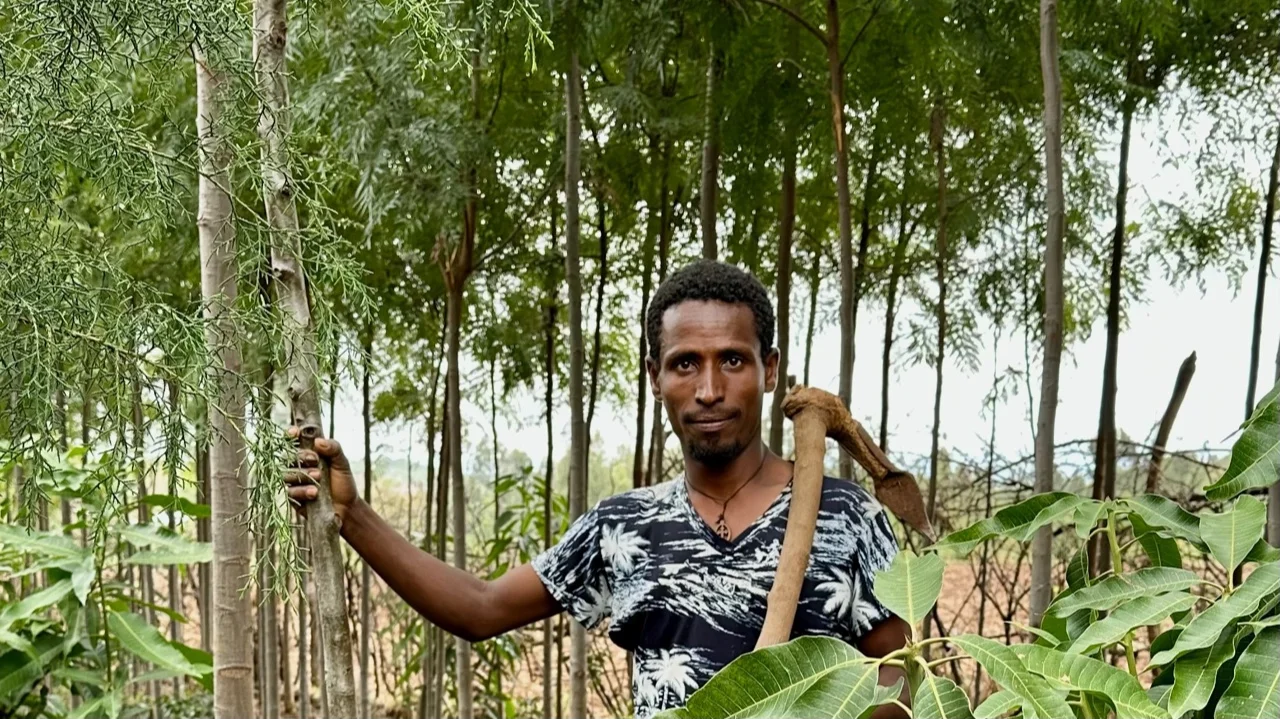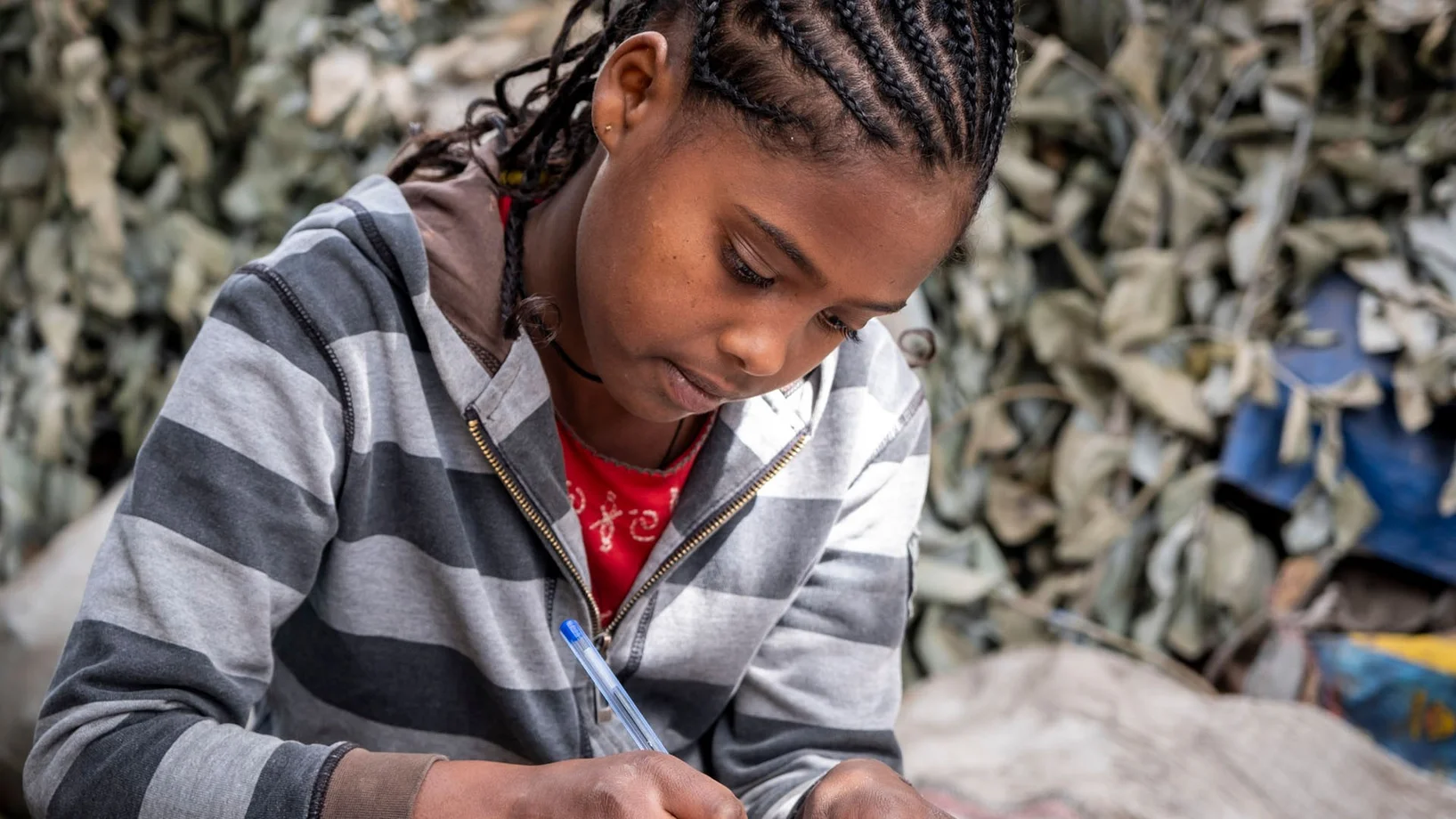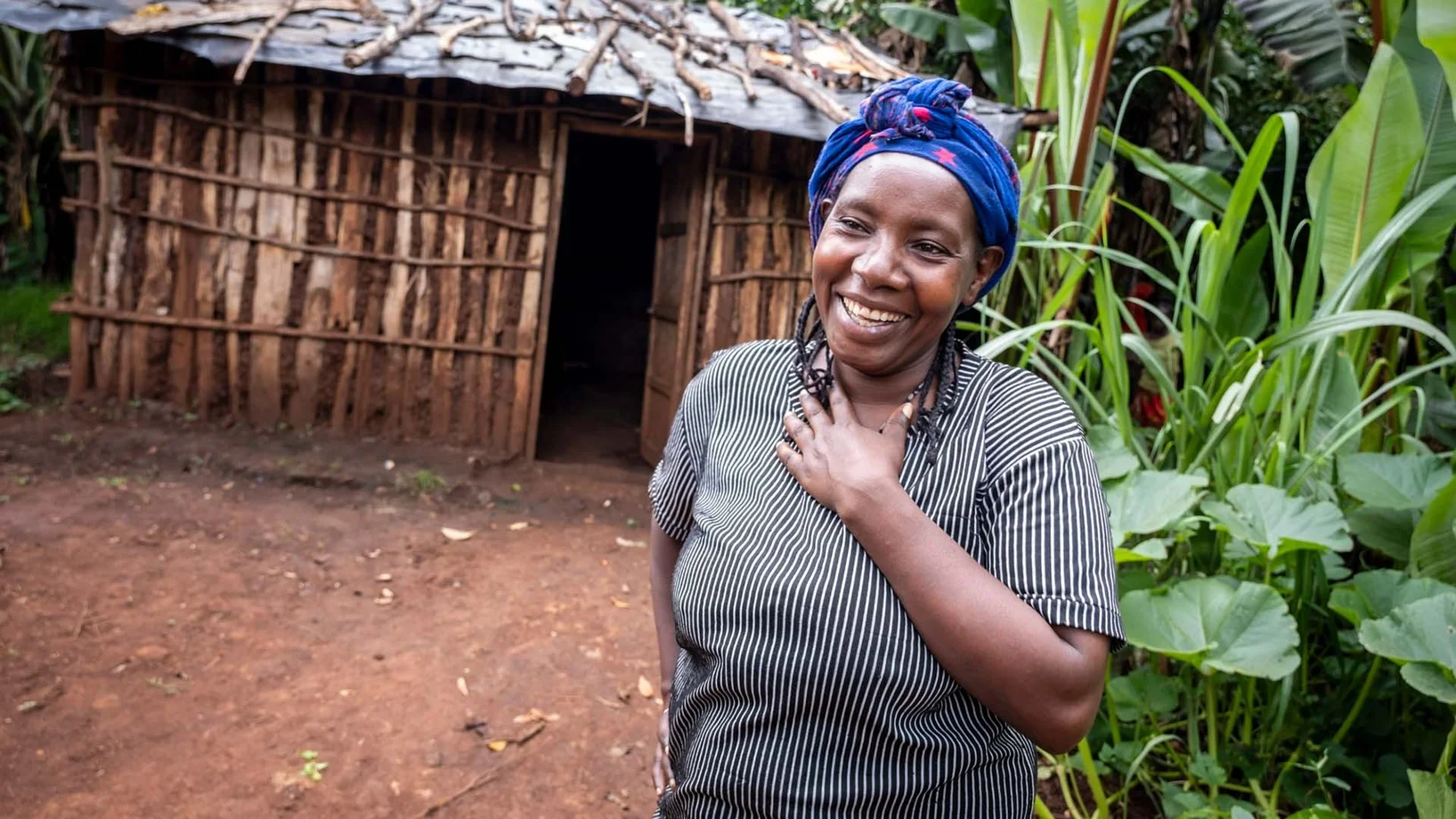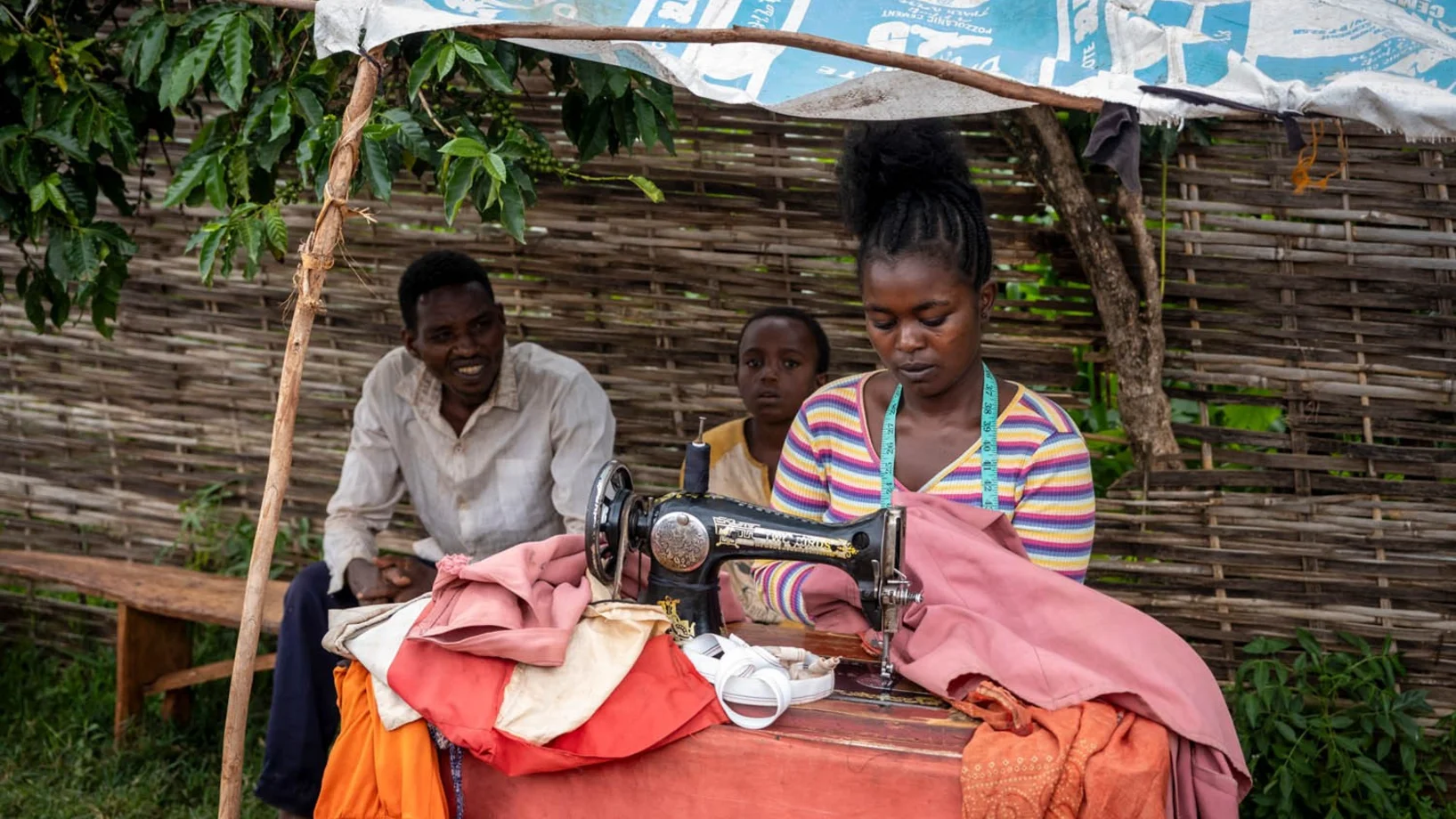In Switzerland, many apartments are larger than the field of small farmer Abeje Mulie. It measures just 117 square meters. How can his family survive? Menschen für Menschen has answers to these questions. Our project in Fogera aims to protect and restore natural resources - so that the families can harvest enough despite the scarce land.
His land is tiny, but Abeje Mulie has turned it into a Garden of Eden. The silver oak trees are lined up in rows. They have already grown five metres high. Coffee bushes and mango seedlings thrive in their shade, and chard grows on the ground: Abeje uses the few square metres in tiers, as the Menschen für Menschen advisers showed him. They call the method agroforestry. In the first few years, only vegetables are harvested, but after just five years, coffee cherries can also be turned into money and the first tree trunks can be felled for lumber. The small farmer received all of the seedlings from Menschen für Menschen.
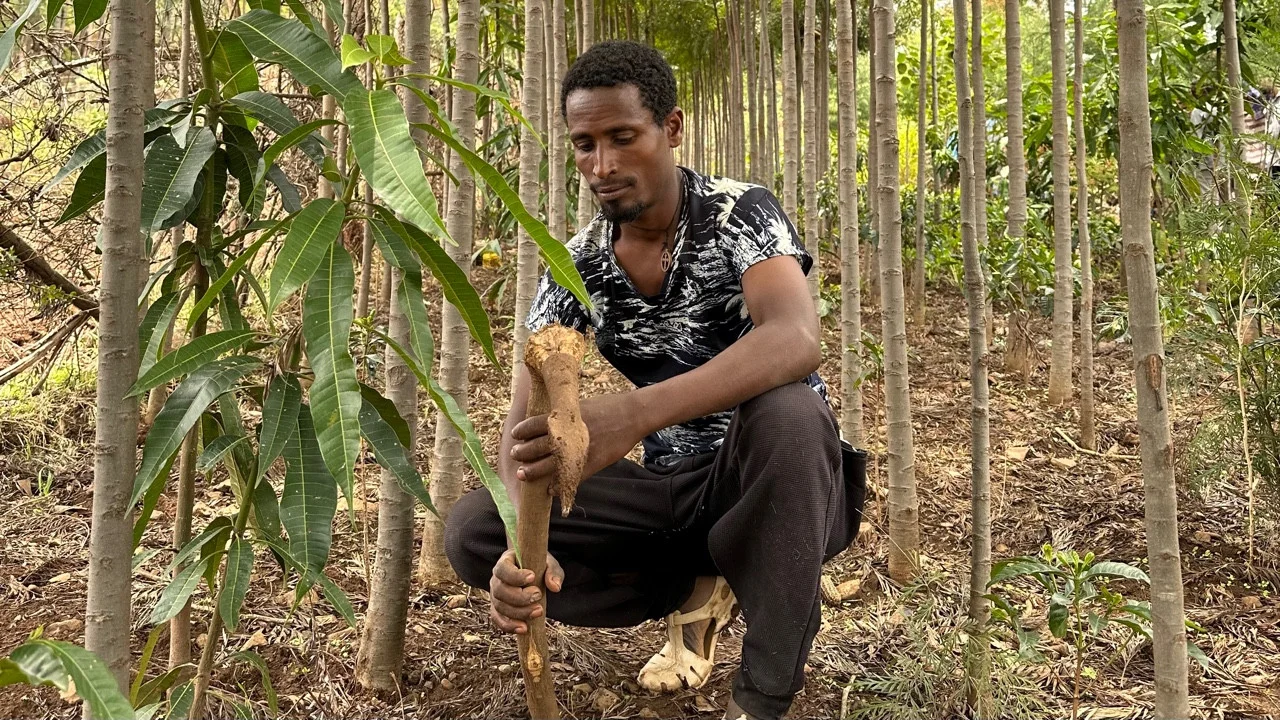
For decades, the tree population in Fogera had been decimated because people needed fields. But where trees disappear, the microclimate deteriorates, the groundwater level sinks, and streams dry up. In the rainy season, there are no longer any tree roots to slow down the rainfall - so the soil is washed away. Global climate change is exacerbating the negative development: the short-term rains are coming more heavily and later - or they don't come at all. This makes sowing more difficult and reduces harvests, contributing to families going hungry. That's why our reforestation projects are helping nature - and people.
WHY WE HELP
The forests in the Fogera district have been cut down out of necessity. This leads to soil erosion. Harvests are lower. Global climate change is also causing problems for farmers: rainfall is erratic. Many families are suffering from food shortages. Natural resources must be protected and restored.
WHAT WE ACHIEVE
- Planting of 388,474 trees on a total area of 74 hectares in 2023 alone
- In total we are planting 2.2 million trees in Fogera
- In addition, small farmers and day laborers receive training, seeds and microcredits to enable them to build a stable existence in their homeland

